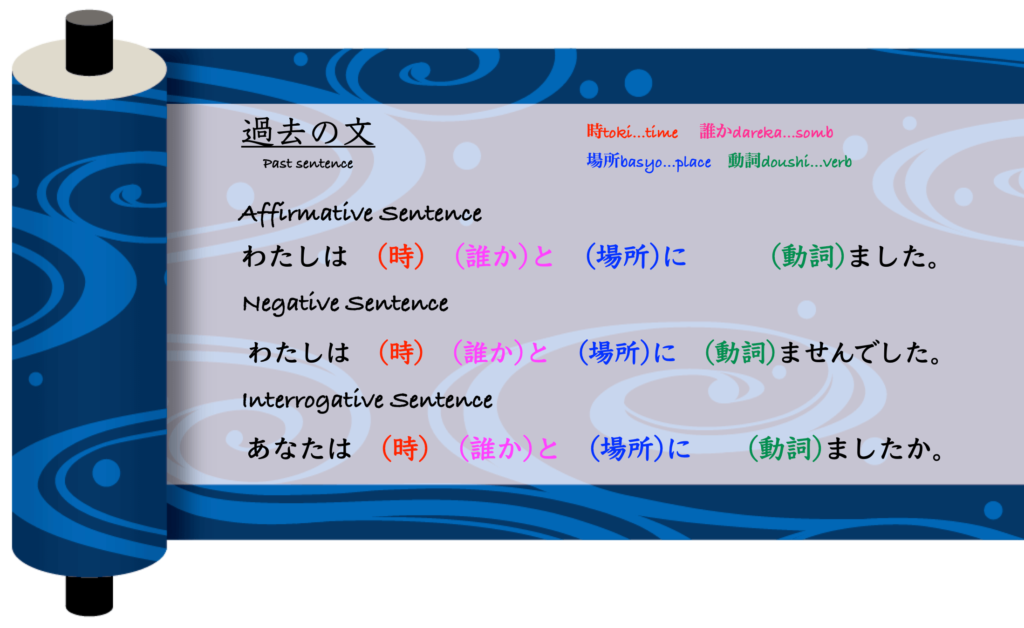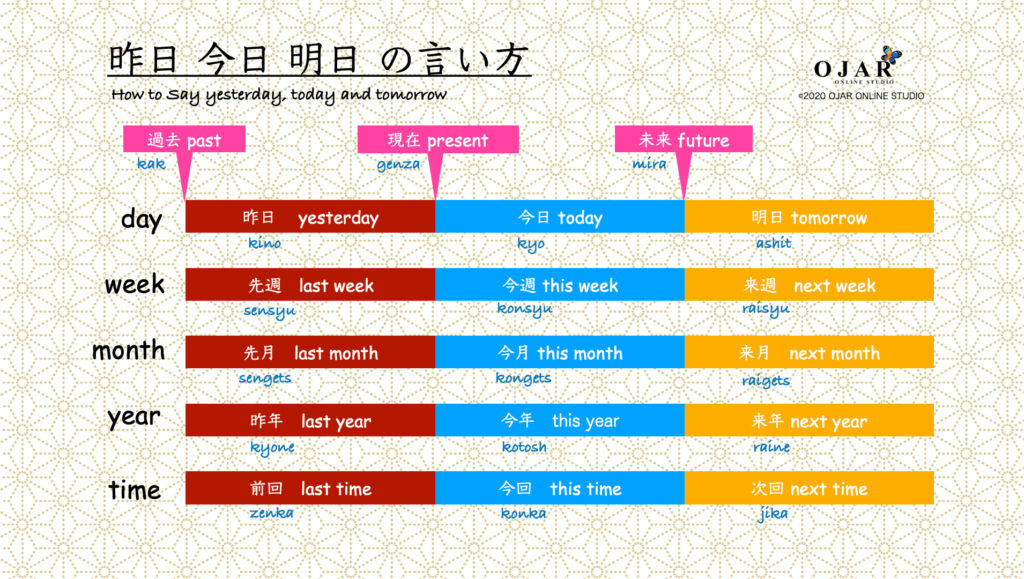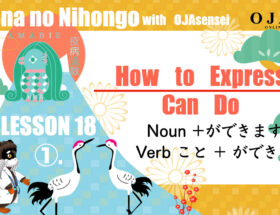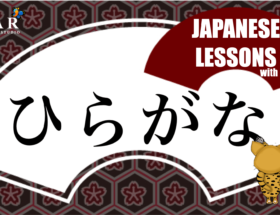Hi, I’m ojachan 🙂 【第5課】 Lesson 5. Watashi wa Osaka ni Ikimashita
I was a cram school teacher in Japan. I taught Japanese from elementary to junior high school students. Don’t you want to know how to learn Japanese like Japanese kids? This lesson is meant for students that are beginners at Japanese.
⭐️This lesson is following the textbook “Minna no Nihongo”. (*not perfectly)
⭐️I’m going to give a lesson easier to understand for Japanese learners without following textbook’s orders.
Let’s get started!
CONTENTS
Key Phrases
I’ll teach you with “ていねい語 teinei-go Polite expression ” 🙂

| わたしは 昨日 友達と 大阪に 行きました。 わたしは きのう ともだちと おおさかに いきました。 watashi wa kinou tomodachi to oosaka ni ikimashita I went to Osaka with my friends yesterday. わたしは 昨日 家族と 旅行しませんでした。 わたしは きのう かぞくと りょこう しませんでした。 watashi wa kinou kazoku to ryokou shimasendeshita I didn’t travel with my family yesterday. あなたは 昨日 ミラーさんと 図書館に 行きましたか。 あなたは きのう みらーさんと としょかんに いきましたか。 anata wa kinou miller-san to toshokan ni ikimashita ka Did you go to the library with Miller yesterday? はい、行きました。 はい、いきました。 hai ikimashita Yes, I did. いいえ、家に いました。 いいえ、いえに いきました。 iie ie ni ikimashita No, I was at home. |
| あなたは 友達と どこに 行きましたか。 あなたは ともだちと どこに いきましたか。 anata wa tomodachi to doko ni ikimashita ka Where did you go with your friend? あなたは だれと 映画館に 行きましたか。 あなたは だれと えいがかんに いきましたか。 anata wa dare to eigakan ni ikimashita ka With whom did you go to a movie theater ? |
Vocabulary Words

・Expressing Words of Past Tense
- 昨- saku is meant “last”.
- 前 mae is meant “ex-” or “previous”. Additionally, 前 as a position is meant “front”.
先 saki is usually used as “future”. But you can use 先 as future and past in these words.
先 is meant the direction of far from the speaker. As a conclusion, if you indicate the point to past, it is meant “the past point”. If you indicate the point to the future point, it becomes “the future point”.
・Expressing Words of Present Tense
- 今 ima is meant “now”.
・Expressing Words of Future Tense
- 来- rai- is meant “next”.
- 次 tsugi is also meant “next”.
| 日本語 | ふりがな | Pronunciation | English |
|---|---|---|---|
| 昨日 | きのう | kinou | yesterday |
| 今日 | きょう | kyou | today |
| 明日 | あした | ashita | tomorrow |
| 先週 | せんしゅう | sensyuu | last week |
| 今週 | こんしゅう | konsyuu | this week |
| 来週 | らいしゅう | raisyuu | next week |
| 先月 | せんげつ | sengetsu | last week |
| 今月 | こんげつ | kongetsu | this week |
| 来月 | らいげつ | raigetsu | next week |
| 昨年 | さくねん | sakunen | last year |
| 今年 | ことし | kotoshi | this year |
| 来年 | らいげつ | raigetsu | next week |
ます形の動詞 ます-form verb
There is conjunction of verb in Japanese. I’m going to tell you ます-form this time.
| dictionary form | ます-form (present) | ます-form (past) |
|---|---|---|
| 行く iku to go | 行きます ikimasu go | 行きました ikimashita went |
| 来る kuru to come | 来ます kimasu come | 来ました kimashita came |
| 帰る kaeru to go back | 帰ります kaerimasu go back | 帰りました kaerimashita went back |
| 出かける dekakeru to leave | 出かけます dekakemasu leave | 出かけました dekakemashita left |
| 旅行する ryokousuru to travel | 旅行します ryokoushimasu travel | 旅行しました ryokoushimashita traveled |
Let’s Practice
Your Homework
✏️Answer these questions in Japanese and comment below.
| 昨日 どこに 行きましたか。 |
Okay, that’s all for today!
Good luck with your Japanese study 😉
*MINNA NO NIHONGO,VOL.1-W/CD*
| Amazon Reviews: | ★★★★★ |
|---|
Publisher:3 A corporation (2nd Edition)
P.S. My English skill is not enough yet. Please correct me with DM from CONTACT if my English is wrong. Thank you for your cooperation!
Next Lesson is; CLICK HERE!
Minna no Nihongo 15: Chiba ni Ikimasenka
Previous Lesson is; CLICK HERE!
Minna no Nihongo 13: Watashi wa Kyoto ni Ikimasu









